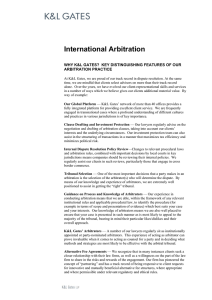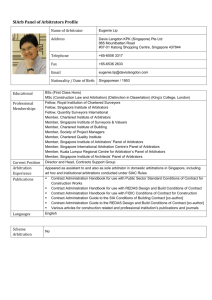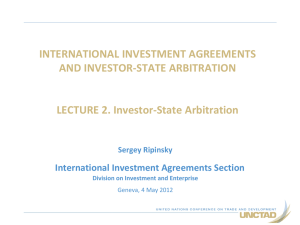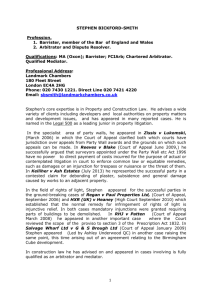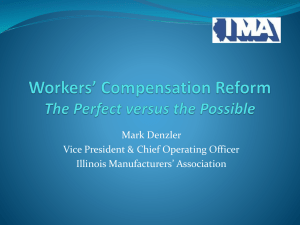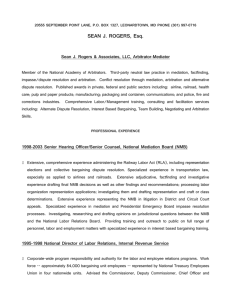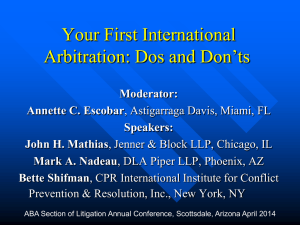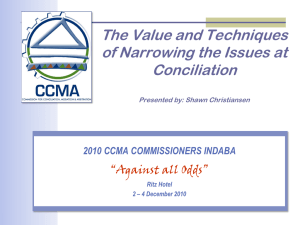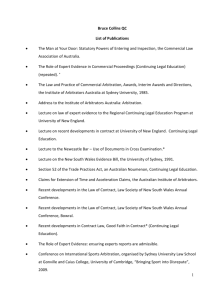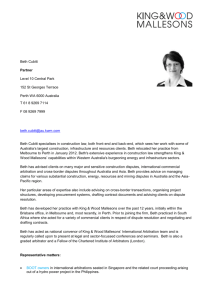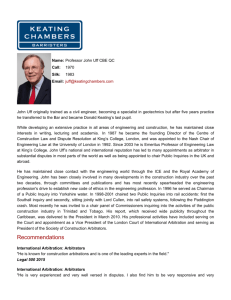Hubert de Vauplane
advertisement
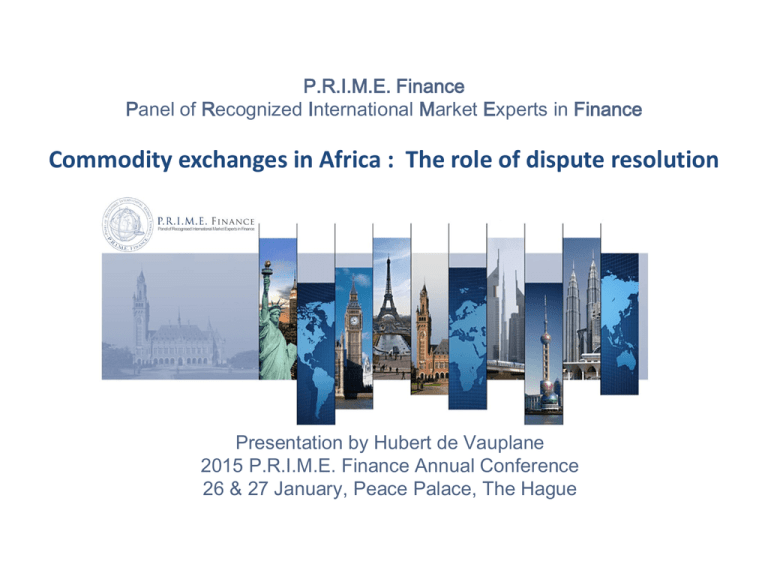
P.R.I.M.E. Finance Panel of Recognized International Market Experts in Finance Commodity exchanges in Africa : The role of dispute resolution Presentation by Hubert de Vauplane 2015 P.R.I.M.E. Finance Annual Conference 26 & 27 January, Peace Palace, The Hague Map of Commodity Exchanges in Africa Ghana MAE Nigeria ASCE Ethiopia ECX Ouganda Kenya UCE KACE Rwanda EAX Zambia ZAMACE Botswana PACDEX South Africa JSE/SAFEX Malawi ACE Zimbabwe ZIMACE Madagascar MEX Potential Disputes in a CE 1/2 • Disputes generated by the Physical Commodity Chain Commodities exchanges Production Transport Stock Exchanges Warehousing Delivery Technical Claims (late delivery, delivery of non conforming contractual goods, failure to give essential notices) Quality or quantity (inefficiency of warehousing) Payment delays Potential Disputes in a CE 2/2 • Dispute generated by the Role of each participant Buyers vs Sellers: Buyer buys the commodity to the Seller. Need of quality and quantity Exchange vs Traders: Exchange is Counterparty to traders and guarantees performance Brokers vs Clients: Broker executes the trade and take the risk on behalf of a client • Possibility of fraud NSEL SCAM in India (2013) Differents system of ADR • Mediation: operates before any litigation • Arbitration: panels of experts appointed to settle the dispute Arbitration systems are notably used in the following African CEs: Nigeria/ASCE Malawi/ACE Rwanda South Africa/SAFEX Ethiopia Ghana (arbitration or mediation) Arbitration and other systems of disputes resolution • Arbitration - Exchange’s disciplinary panels Market abuse Contraventions to the exchange rules Rwanda: Exchange disciplinary commission expels and sanctions Member for offenses to the Exchange Rules • Arbitration sanctioning by public regulator In GCX (Ghana), the Securities and Exchange Commission established under section 1 of the Securities Industry Regulations, 1993 PNDCL 333, specifies the codes of conduct, accredits and takes sanctions against the member of the Exchange • Arbitration industry self-regulator Jurisdictions like United States Legislative and Jurisdictional framework for arbitrators • What is the force of the arbitration award ? Arbitration award may find their force in: The law The rules of the exchange (by contract) The exchange’s regulator • Implications Enforceability *Award is final and binding *Sanction mechanisms if the parties refuse to apply an award Appeal *The appeal must be coherent and must not contrast with the objectives of the ADR *No right to appeal in most of the systems (Malawi, South Africa WRS) What do Commodities Exchange need? • • • • Standardization equally applied among Members Quickness of decision capacity of arbitrators Effectiveness must be binding/not subject to appeal Neutrality not favor the Exchange/a Member against another Typically, what can affect this neutrality is : The fees that are payable by the party that refers to arbitrators The dependence of the arbitrators toward the Exchange, when the dispute involves the Exchange What do Commodities Exchange have? • Lack of Legal or Technical Capacities Adaptation issues Arbitrators may not be adapted (example of SAFEX in South Africa, where the arbitrators are the same for the Stock Exchange and for the CE) Law capacities Arbitrators are sometimes professionals and not properly lawyers or judges (example of ASCE in Nigeria) • Conflict of Interests Problem with the fee structure: example in Malawi • Risk of Corruption => Ethiopian scandal of 2012 Our proposals • Widening the scope of Experts in commodities among PRIME members Recruiting specialists of Commodities markets Training the existing arbitrators to the Commodities markets • Set up a committee of international arbitrators from PRIME to deal with African CEs disputes Create panels from which arbitrators could be appointed to settle a dispute Defining precise eligibility criteria for arbitrators P.R.I.M.E. Finance Panel of Recognized International Market Experts in Finance 2015 P.R.I.M.E. Finance Annual Conference 26 & 27 January, Peace Palace, The Hague

